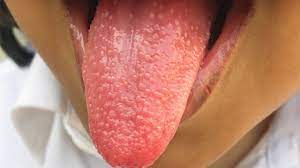Strep throat is a contagious infection caused by the bacteria Streptococcus pyogenes. It is one of the most common bacterial infections in children, and can cause a range of symptoms from mild to severe. In this guide, we’ll walk you through what strep throat is, how it is diagnosed and treated, and how to prevent it from spreading.
What is Strep Throat?
Strep throat is a contagious bacterial infection caused by Streptococcus bacteria, which most commonly attacks the oropharynx (the middle part of the throat). It can cause a range of symptoms, including sore throat, fever, swollen lymph nodes, and body aches.

Symptoms of Strep Throat
The most common symptoms of strep throat include:
• Sore throat: The throat may feel scratchy and be painful to swallow.
• Fever: You may have a fever of over 101°F (38°C).
• Swollen lymph nodes: Your neck may feel tender and swollen.
• White spots on the tonsils: You may see small white spots on your tonsils.
• Headache: You may experience a headache.
• Body aches: You may experience body aches and chills.
• Loss of appetite: You may not feel like eating.
Diagnosis of Strep Throat
If you think you or your child may have strep throat, it’s important to see a doctor right away. The doctor will start by performing a physical examination, which may include a throat swab. This swab is used to collect a sample of the bacteria to test for the presence of Streptococcus pyogenes.
Treatment of Strep Throat
1. Antibiotics: Strep throat is usually treated with antibiotics, such as penicillin or amoxicillin.
2. Pain relievers: Over-the-counter pain relievers can help reduce fever and relieve sore throat pain.
3. Gargle with salt water: Gargling with salt water can help reduce swelling in the throat.
4. Drink fluids: Drinking plenty of fluids to stay hydrated can help reduce throat discomfort.
5. Rest: Getting plenty of rest can help the body fight off the infection.
6. Avoid irritants: Avoiding irritants, such as smoke and spicy foods, can help reduce throat irritation.
Preventing the Spread of Strep Throat
The best way to prevent the spread of strep throat is to practice good hygiene. This includes washing your hands often with soap and water, and avoiding close contact with people who have strep throat. It’s also important to avoid sharing food, drinks, or utensils with an infected person.
Conclusion
Strep throat is a bacterial infection caused by Streptococcus pyogenes. It is most common in children and can cause a range of symptoms from mild to severe. If you or your child suspects strep throat, it’s important to see a doctor right away. Treatment typically involves antibiotics, as well as pain relievers and other medications. To prevent the spread of strep throat, it’s important to practice good hygiene, such as washing your hands often and avoiding close contact with people who have the infection.












